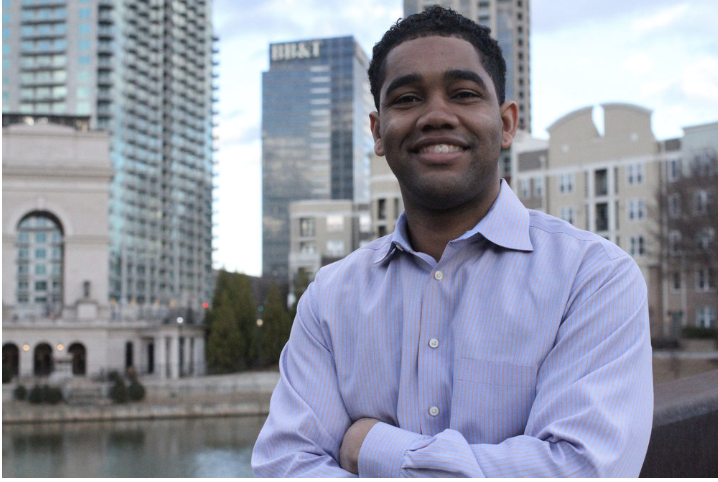(Public Speaking Tip #13)
“It Can Be Painful”
The day I knew that I wanted to be a Public Speaker was both one of the happiest and saddest moments of my life. On March 26th, 2016 I competed in a Toastmasters Speech Contest. I had the opportunity to talk about anything I wanted to, but I knew that in order for me to have a shot at winning, I needed to talk about something that everyone could relate to. With that being said, I needed to connect with my audience’s emotions. So I chose to talk about my Grandmother’s battle with Alzheimer’s, but I wasn’t sure exactly how much detail I wanted to share. Many people already know about Alzheimer’s and memory loss, so I knew that me describing the different experiences I had with my grandmother when it came to her battle would be key to me getting my point across. As I compiled my memories onto paper and relived some of those moments while I prepared my speech, it became more evident to me that this would be less about me winning this speech competition and more about me spreading awareness. In order to spread awareness I had to be vulnerable.
I’m a confident.. very confident man. But truthfully speaking, I was scared in this moment. I was scared of what people would think about my grandmother. I was scared I was going to overshare as I gave details. I was scared that I would forget that I was part of a contest and would talk for too long. I was scared that what I would say would trigger someone else’s sad memories of their loved one fighting a similar battle. But above all of that, I knew my message had to outweigh my fear. If I wanted any shot at truly making an impact in those 5 to 7 minutes, I had to let the fear go and open myself up. I knew that what I was going to say may not come out squeaky clean and it may put a sad mood on the room, but it had to be said.
Everybody battles with vulnerability. We all have secrets, people, or thoughts that make us vulnerable. We all have multiple things that put us on the defense. It may or may not be embarrassing, but it’s definitely hard for you to relive. And for the most part, we do our best not to show it or we do our best to stay away from whatever it is that makes us feels this way. But when it comes to speaking, good speakers can be vulnerable in front of strangers and not feel away about it. Great speakers can take their vulnerability and teach a lesson to people they never met before while not worrying about judgement. Some of the most common words I’ve heard associated with vulnerability include weakness and fear, even hurt. Those assumptions are to be expected. But your vulnerability can only be a sign of weakness if you let it.
Vulnerability requires you to be the most honest that you can be. It requires you to be honest with yourself and then honest with others. It may require you to reveal parts that you haven’t even come to grips with yourself. It may be embarrassing. It may be heartbreaking. But it’s absolutely 100% OK to be vulnerable when you are the stage. In fact, you should welcome it. Vulnerability makes you appear human and at times, speakers can be perceived as everything but human. Some people feel like speakers can do no wrong and that they are a step above everyone else. This couldn’t be farther from the truth. When your audience is able to see that you go through hardships like them… that you’ve cried like them… that you’ve had problems in your life like them…. They gravitate towards you. The more your audience gravitates towards you, the more likelihood your message will land and stay with them. More people will remember you and ultimately, they won’t feel alone in whatever it is they are going through in this very moment.. because they can look to you for inspiration.
Make your next presentation, your best presentation!
Sincerely,
Julian A. Leonard
(Founder of The JLeonard Group LLC)
Previous Tip
Public Speaking Tip #12:
“No Apology Needed”
As a little boy, I was taught to say sorry when I made mistake. If I accidentally spilled something, I would say sorry. If I didn’t say excuse me and bumped into you, I’d say excuse me and then say sorry. If I didn’t want to…

